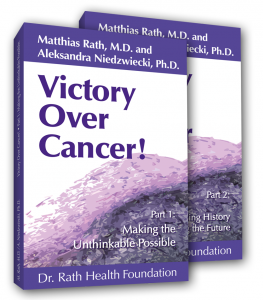Regulatory Approval For Cancer Drugs Based On ‘Biased’ And ‘Exaggerated’ Evidence
An analysis of 32 cancer drugs approved by the European Medicines Agency between 2014 and 2016 has found that only 9 of them were supported by at least one randomized controlled clinical trial judged to be at low risk of bias. Around half of the trials carried out to test the drugs were considered to be at high risk of exaggerating the treatments’ supposed benefits.
Published in the British Medical Journal (BMJ), the analysis also revealed that the majority of trials didn’t even evaluate overall patient survival as a primary outcome of the studies.
In other words, most of the 32 cancer drugs were approved without establishing, as a key outcome, whether they increase patients’ lifespans.
Randomized controlled clinical trials are generally considered the ‘gold standard’ for medical research. In such studies, patients are randomly assigned to receive either the treatment or a placebo.
The studies are normally also conducted ‘double-blind’. This means that, during the study, neither the patients nor the researchers know who is receiving the treatment and who is receiving the placebo.
When followed correctly, such an approach helps prevent bias when assessing the results. As the BMJ analysis shows, however, the bias in studies reporting on the outcomes of cancer drug trials is far from rare.
Around half of the studies examined by the BMJ, researchers were judged to be at high risk of bias based on their design, the way they were carried out, the way in which the study data were reported, or analysis of the results. Clearly, if all cancer patients were told the facts about this, few of them would consent to being treated with drugs approved in this way.
Cancer is no longer a mysterious disease
Ultimately, of course, the degree of bias and exaggeration in studies used to gain regulatory approval for cancer drugs is not at all surprising. This isn’t merely because of the lack of evidence that drugs provide the answer to eradicating cancer. It is also because they do not address the disease’s primary mechanisms in the first place.
As Dr. Rath and Dr. Niedzwiecki describe in their groundbreaking book, Victory Over Cancer, cancer is no longer a mysterious disease. Its key mechanisms of development and control are already known. While cancer can be caused by many factors, there is one common mechanism via which all types of cancer cells spread: the digestion of connective tissue around the cancer cell. Escaping the connective tissue that surrounds them is a precondition for cancer cells to grow, spread, and develop into a life-threatening disease.
Cancer cells break through the connective tissue surrounding them by producing uncontrolled amounts of naturally occurring enzymes that function as ‘biological scissors’. All cancer cells, regardless of where they originate in the body, produce these enzymes as a means of digesting the connective tissue surrounding them. The more of these enzymes a cancer cell produces, the faster it will spread. Consequently, the shorter will likely be the life expectancy of the patient.
Saving lives with natural approaches to cancer
Given that cancer cells spread by means of breaking down the connective tissue that surrounds them, it follows that stabilizing the body’s connective tissue and preventing its uncontrolled breakdown can save lives. Towards these goals, cancer research conducted at the Dr. Rath Research Institute has shown that three natural molecules play a particularly important role:
Lysine – An essential amino acid, lysine inhibits the destruction of connective tissue by preventing collagen molecules from being digested by ‘biological scissor’ enzymes. A key component of connective tissue, collagen is the most abundant protein in the body. The human body cannot produce lysine and modern diets contain insufficient amounts of it.
Vitamin C – A crucial micronutrient in the natural control of cancer, vitamin C stimulates the production of collagen and other connective tissue molecules and is essential for their optimum structure. As with lysine, the human body cannot produce vitamin C and modern diets contain insufficient amounts of it.
Proline – A so-called ‘non-essential’ amino acid, proline is also an important building block of collagen. While the human body can produce proline, it can do so only in limited amounts.
Other key micronutrients in the natural control of cancer include the amino acids arginine and N-acetyl cysteine; the minerals selenium, copper and manganese; and polyphenols such as quercetin and the green tea extract epigallocatechin gallate (EGCG).
Cancer drug trials – a conjuror’s ‘sleight of hand’ trick
 It is not only in Europe that regulatory approval of cancer drugs is based on biased and exaggerated evidence. In their analysis of the 32 cancer drugs approved by the European Medicines Agency, the BMJ researchers also describe how a large American evaluation found that clinical studies of cancer drugs in the United States were less likely to be randomized and double-blinded than studies of drugs in other disease areas. This situation is no accident, of course. It simply reflects the fact that cancer is the pharmaceutical industry’s most profitable disease. To the pharmaceutical ‘business with disease’, science comes a very poor second to shareholder profits.
It is not only in Europe that regulatory approval of cancer drugs is based on biased and exaggerated evidence. In their analysis of the 32 cancer drugs approved by the European Medicines Agency, the BMJ researchers also describe how a large American evaluation found that clinical studies of cancer drugs in the United States were less likely to be randomized and double-blinded than studies of drugs in other disease areas. This situation is no accident, of course. It simply reflects the fact that cancer is the pharmaceutical industry’s most profitable disease. To the pharmaceutical ‘business with disease’, science comes a very poor second to shareholder profits.
As such, while the BMJ researchers write that their findings “highlight the need to improve the design, conduct, analysis, and reporting of cancer drug trials”, their recommendation avoids the facts. Any thorough medical journal assessment of the efficacy of pharmaceutical treatments for cancer would inevitably conclude that chemical drugs are not and never will be the answer to this disease.
Far from being based on science, cancer drug trials bear more resemblance to a conjuror’s ‘sleight of hand’ trick. Public acceptance of chemotherapy and other drugs for cancer depends upon keeping patients ignorant of the losing hand they are dealt with when consenting to treatment. With an estimated 9.6 million deaths occurring globally from cancer in 2018 alone, it is time for the world to be told the truth.





